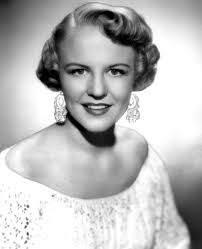
Being a successful writer may not be the Shangri-La would-be writers think it is. In his fast-paced, anecdotal writer advice book, Consider This: Moments in My Writing Life after Which Everything Was Different, Chuck Palahniuk warns that true success depends on putting a new book out every year. Feed your demanding readers, in other words—or else.
Then he goes into a long story about Stephen King at a signing where the horror master suffered a bloody callus on his signing finger. He was getting bits of blood on the books he was autographing and asked a handler to fetch him some bandages.
No way, the fan behind the guy whose book was presently being signed shouted. He wanted the King’s ink and blood, too!
Turns out, so did the others in the serpentine line behind these two. Seemed everybody wanted that famous blood, thinking it would make their keepsake books not only better keeps but more valuable sakes. Thus, to avoid a mini-riot, the Master of Horror had to endure his own horror show of sorts, signing on in pain.
You guessed it, in Palahniuk’s book, book tours come off as decidedly less romantic than wannabe writers suppose, to the point where many stories have you muttering, “Is that all there is?”
If those words sound familiar, it’s because Peggy Lee sang the song in 1969.
It could be a theme song for writers. The thought came to mind this past week when I received a rejection from a small book publisher.
Think of it: You send five poems to a poetry journal with a reading fee of $3. Ten months later, you get a rejection and say, after the long wait, “Is that all there is?”
The book rejection seemed seven times worse. It cost $20 for the privilege of being read, but you know and I know that some editor reading a book of poetry knows within the first 5-10 poems whether she wants it or not, even if, in fairness, many poetry collections feature a whole that speaks volumes about their parts.
But, no. In this case it was, “Thanks for the 20 bucks, pal!” And for what? This publisher sent me a one-sentence (!) boiler plate rejection note, almost assuredly after having never read the manuscript in full.
Feedback, even in general terms? None whatsover. That would require I full reading. Instead, it was take the money in run, in broad daylight.
Is that all there is?
Even “success” brings this nagging question around. Got a book accepted and published? As a newbie, you get ridiculous delusions of grandeur. The book tours Palahniuk referred to. The huge sales sure to come. The inevitable demand for another book from your adoring legions.
Truth is, for 99% of writers, it’ll be but a few sales, and most of those to kind friends and family.
Is that all there is?
Palahniuk even shares stories of well-known writers like Ken Kesey doing readings for, wait for it, TWO readers, followed by none whatsoever at a second locale. That and readings where there three dozen people, but they only bought a sum total of three books.
Three.
One could well picture Kesey channeling Peggy Lee as he shuffled back to his hotel room, saying: Is that all there is?
Ah, well. There’s always the song for consolation. If you listen to it, the mood Peggy creates seems perfect for writers and poets who are learning the hard way. Success comes in many shades and, quite often, isn’t all it’s cracked up to be.
Alas.
